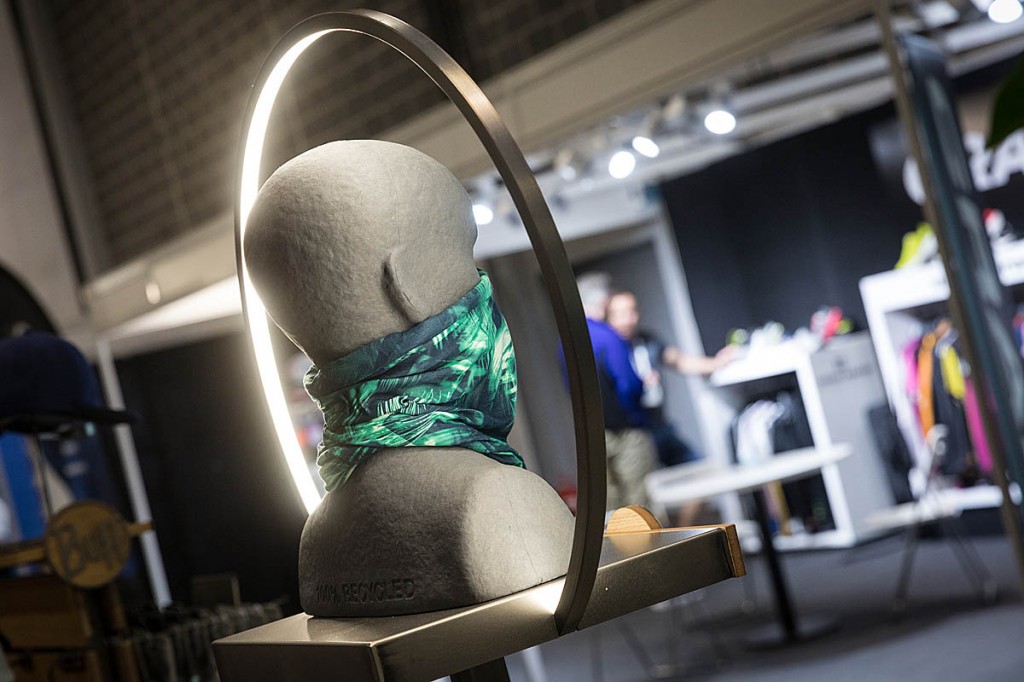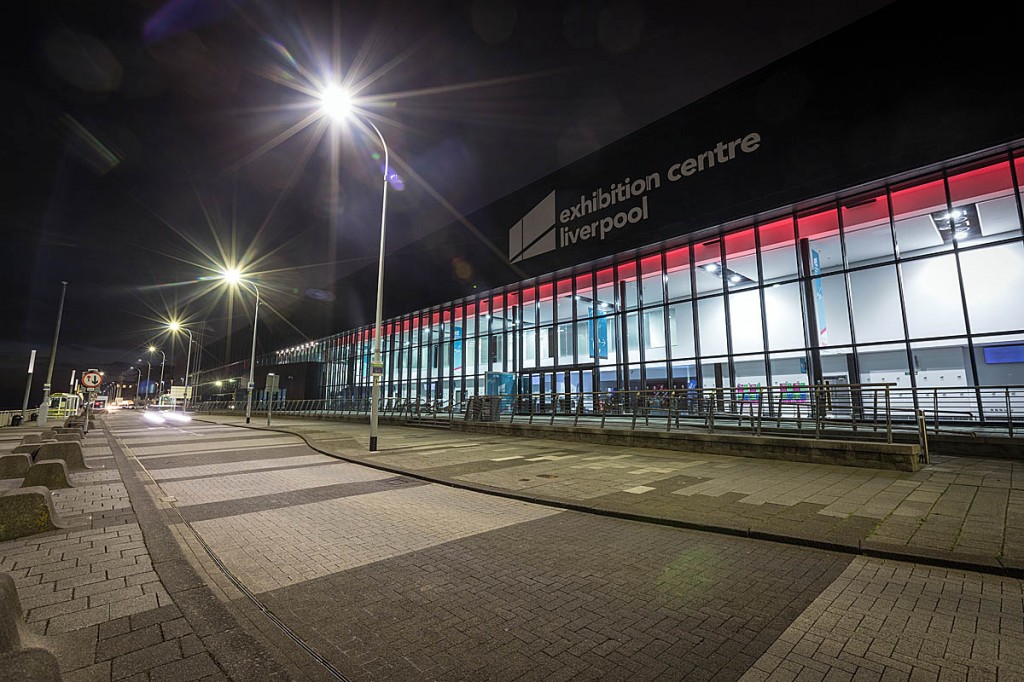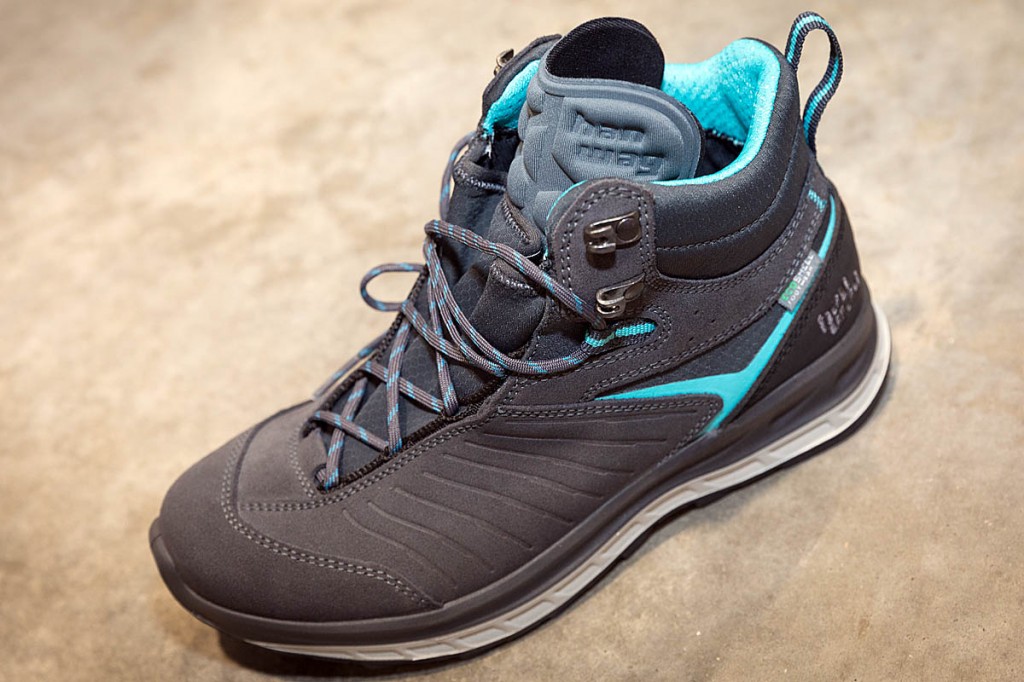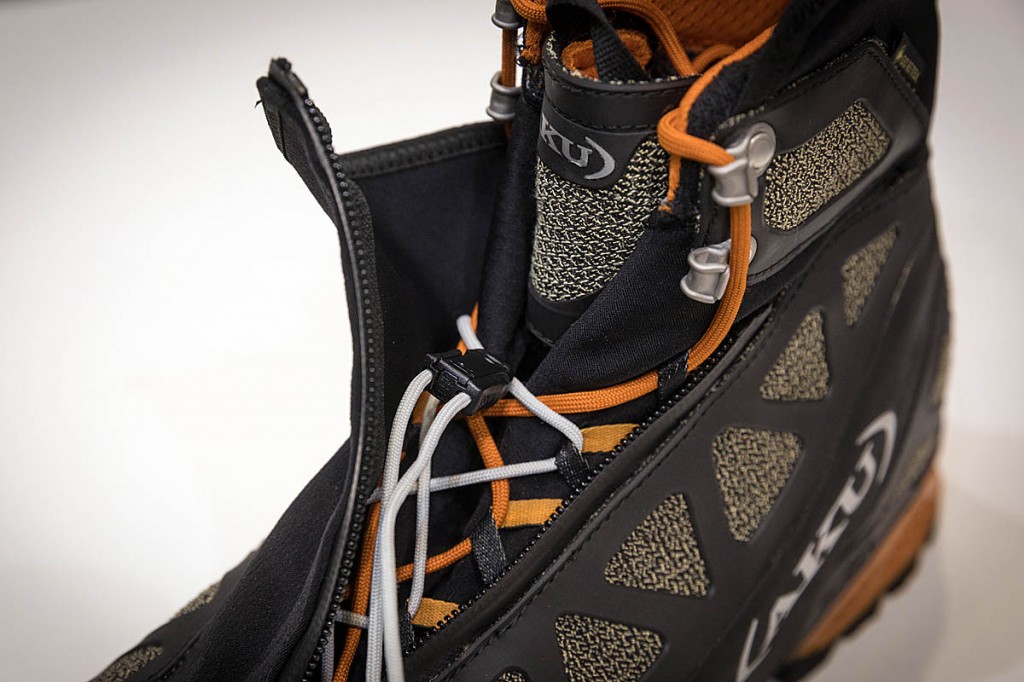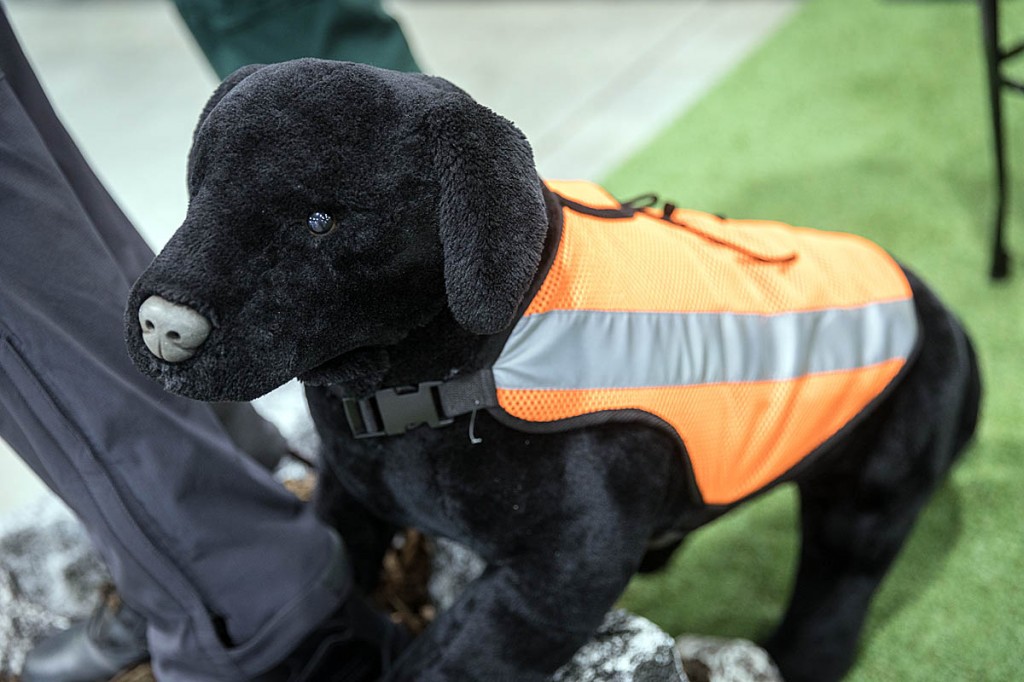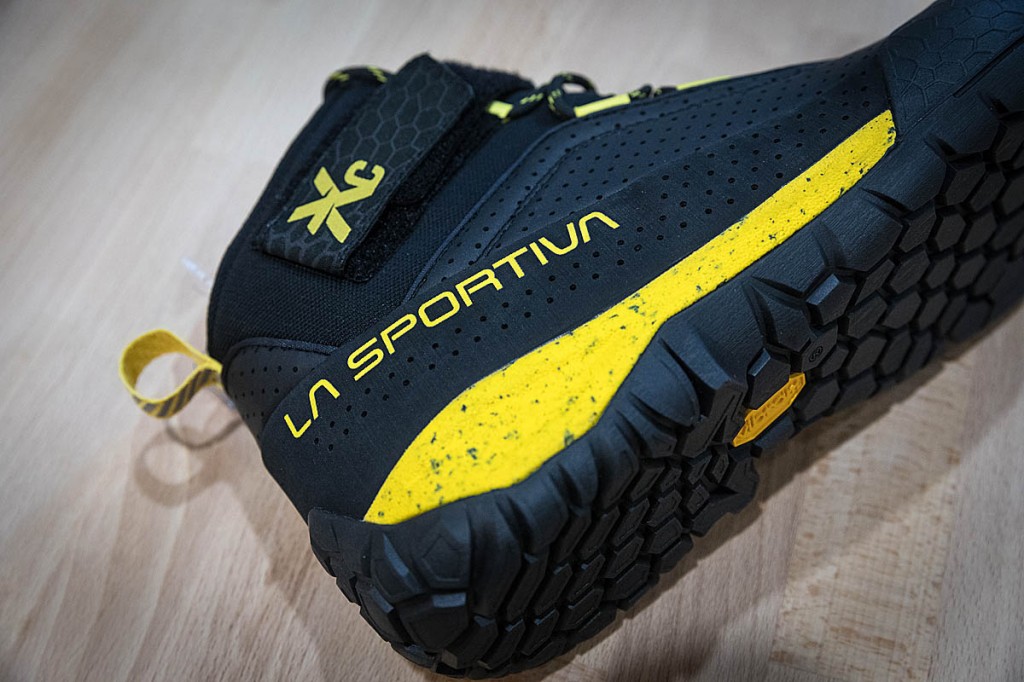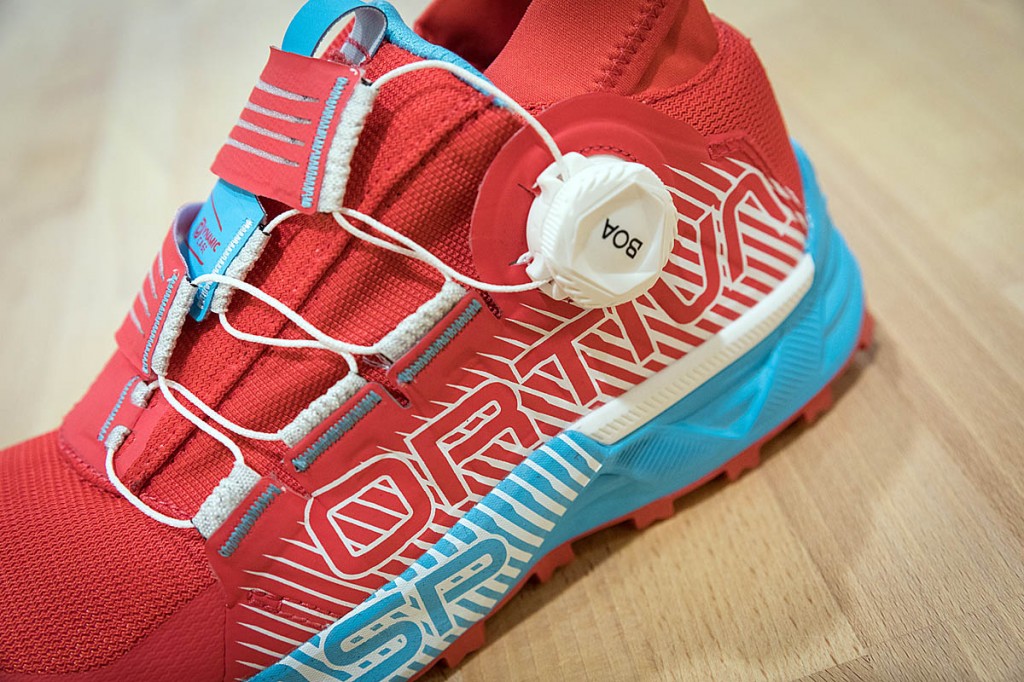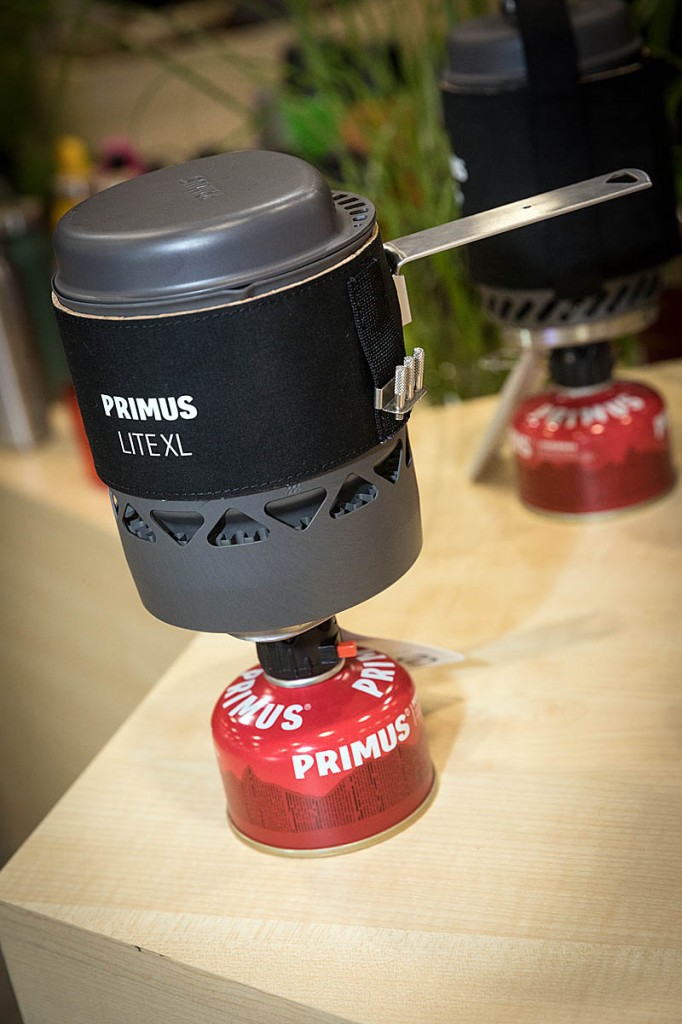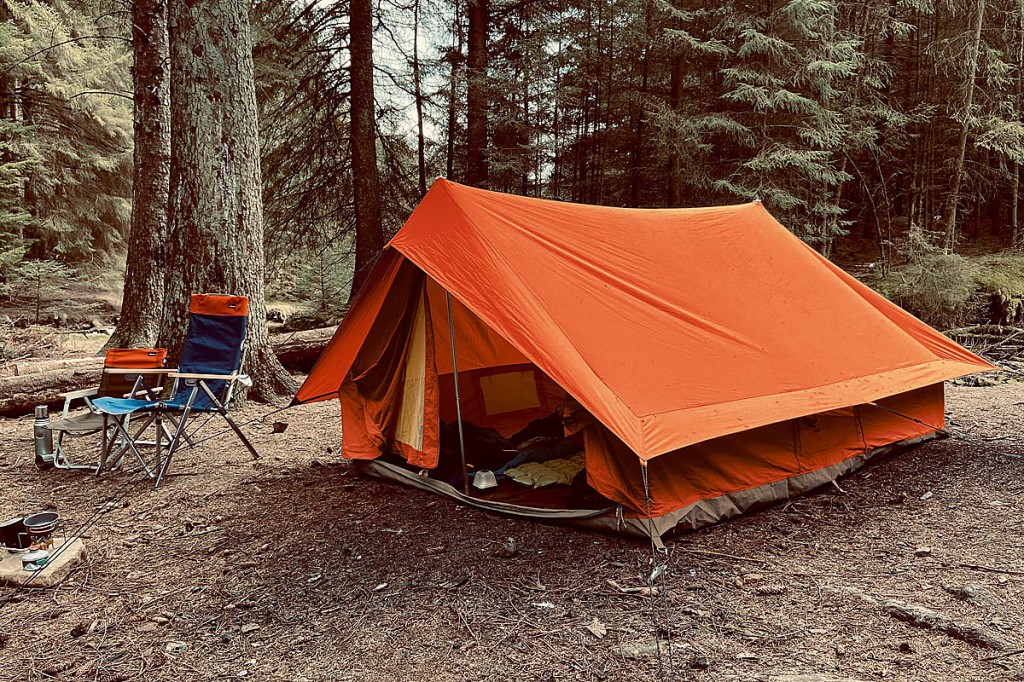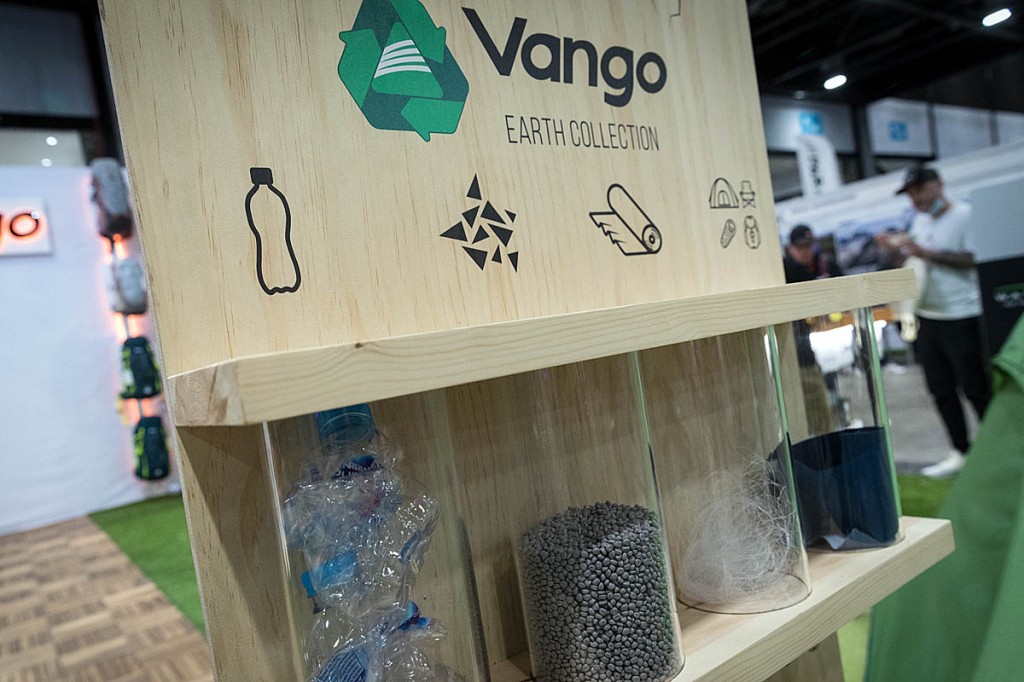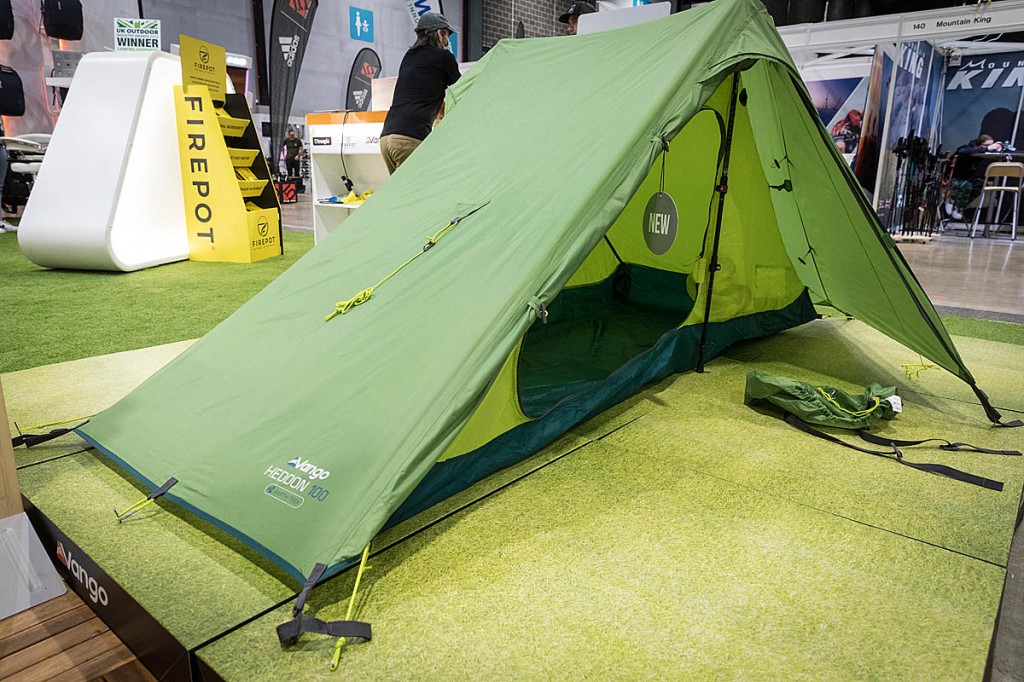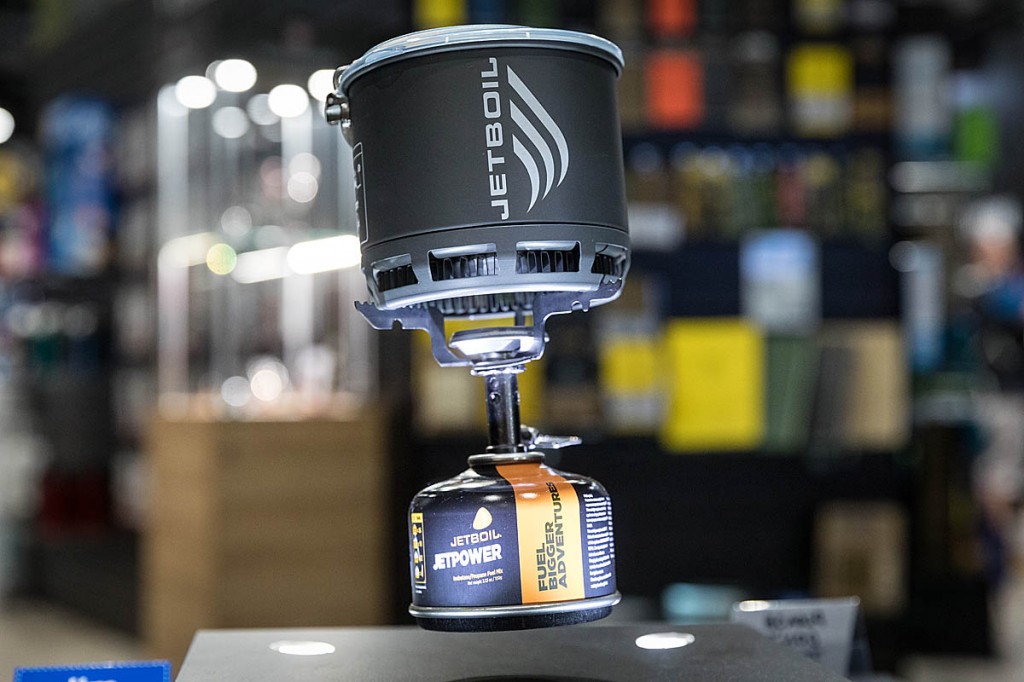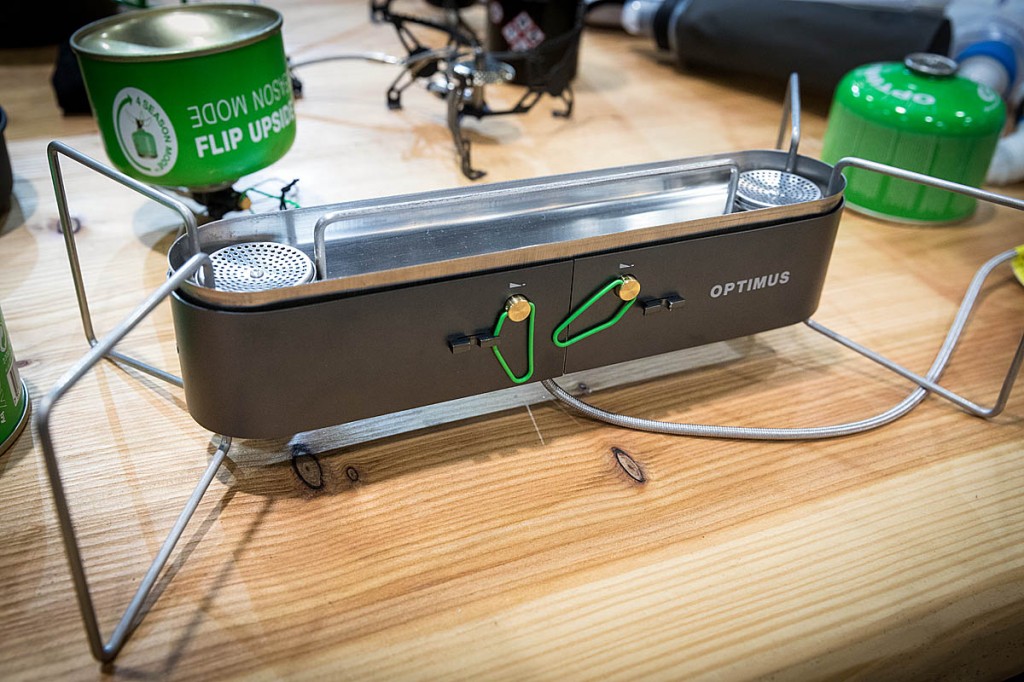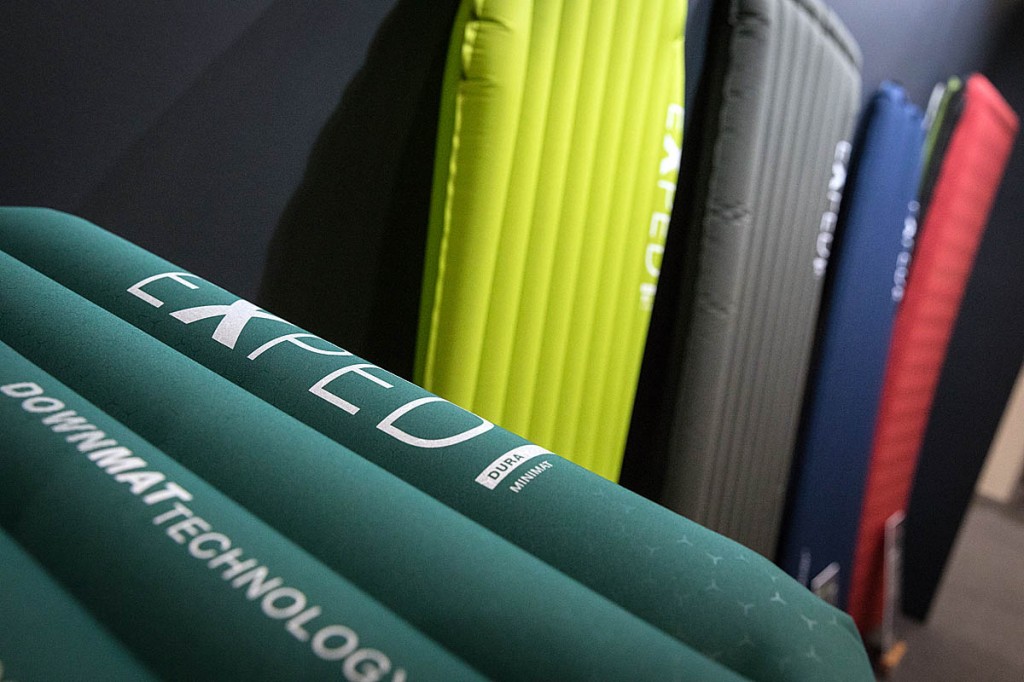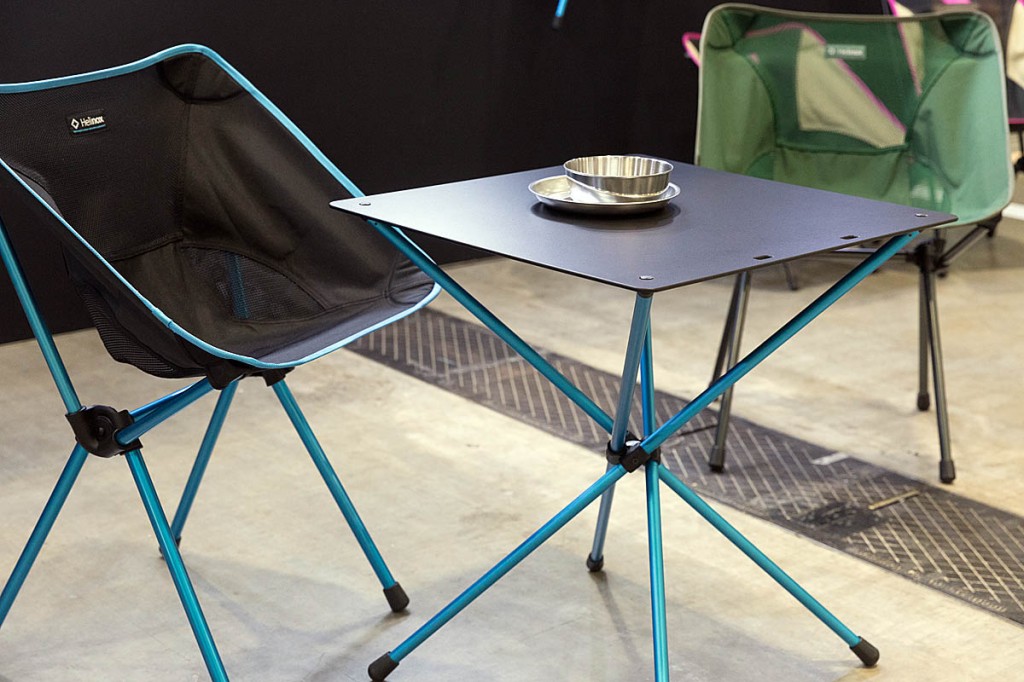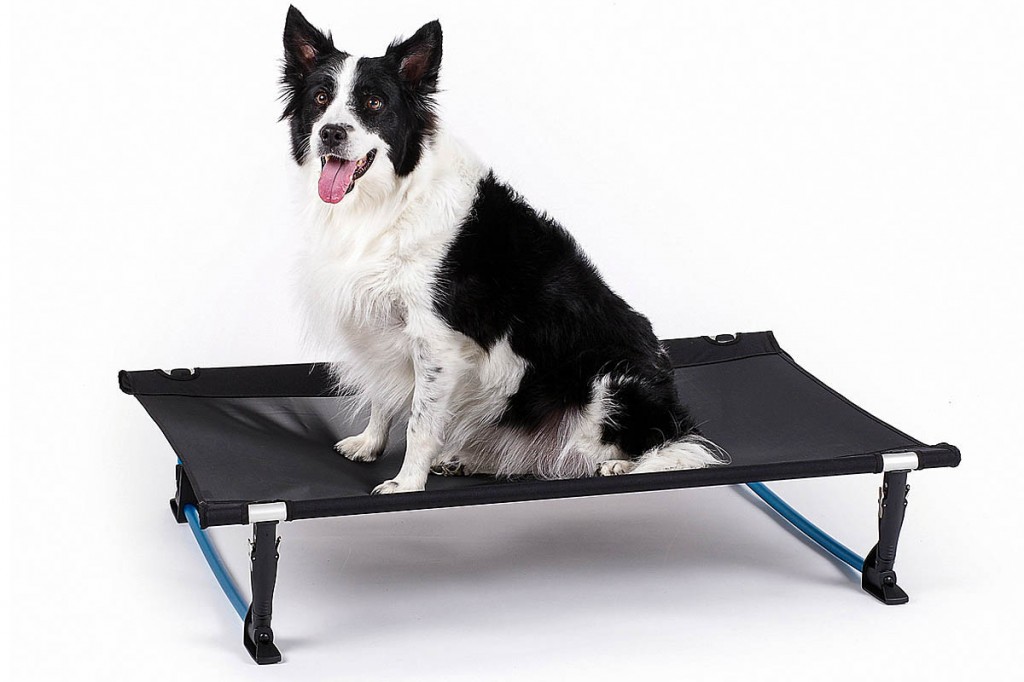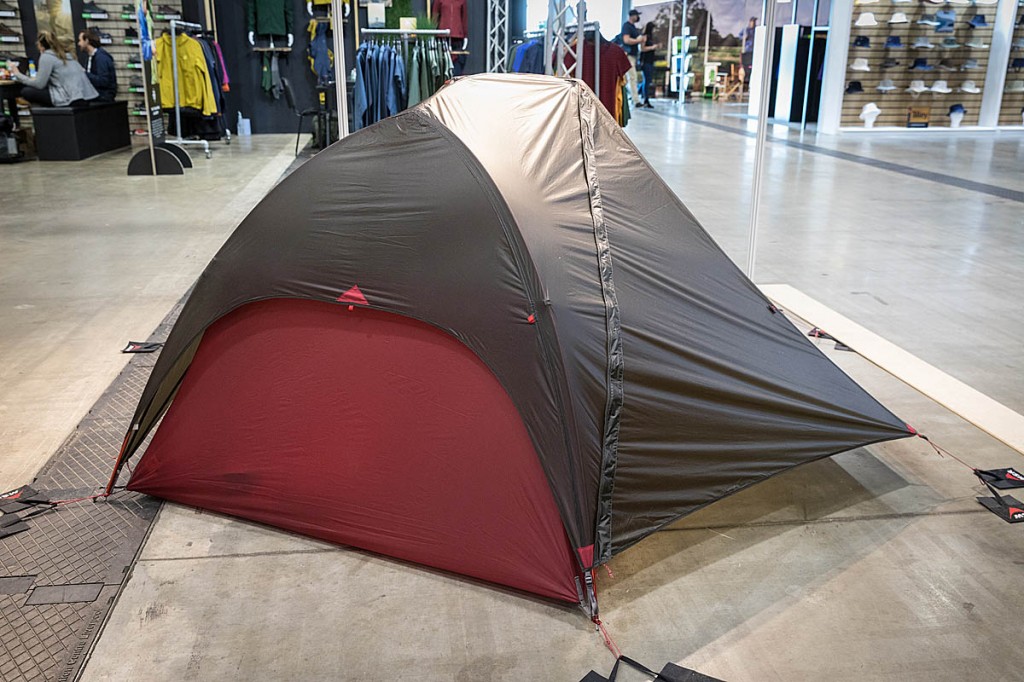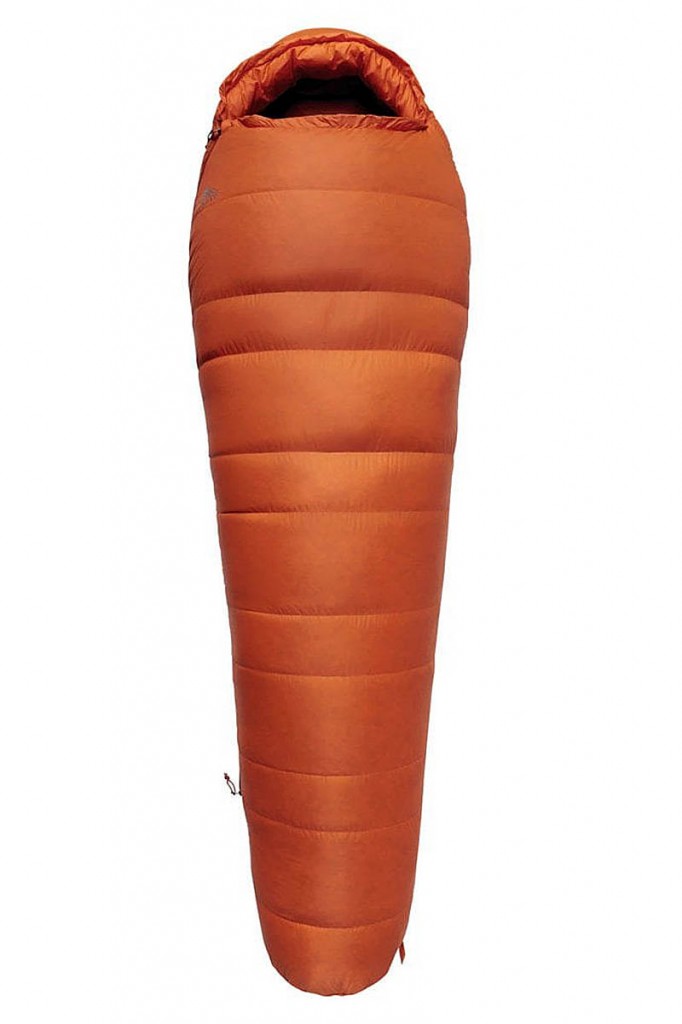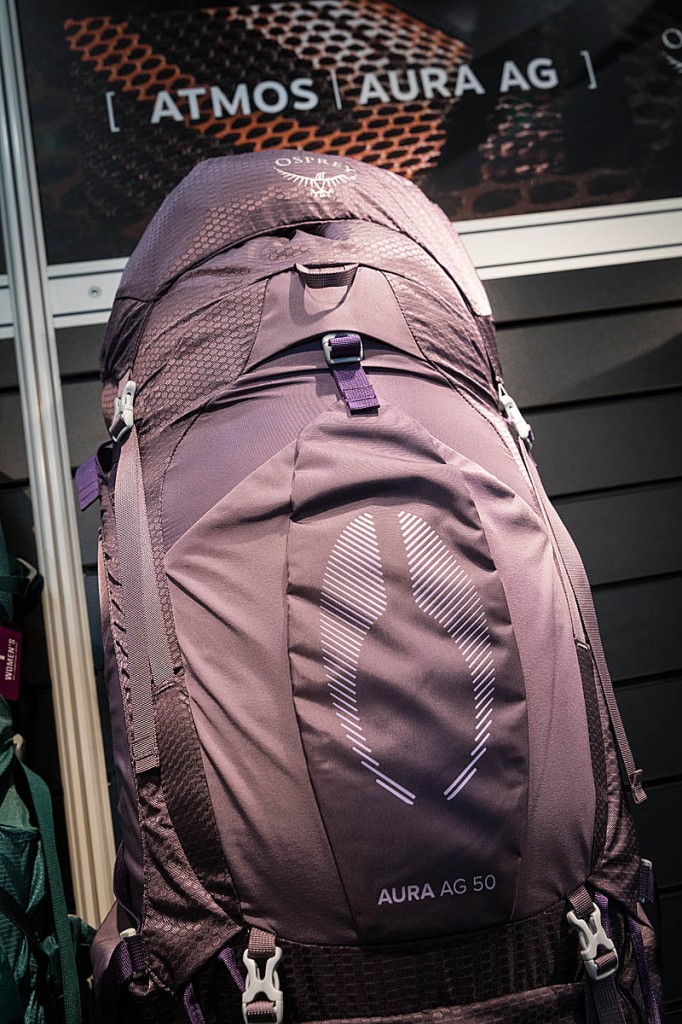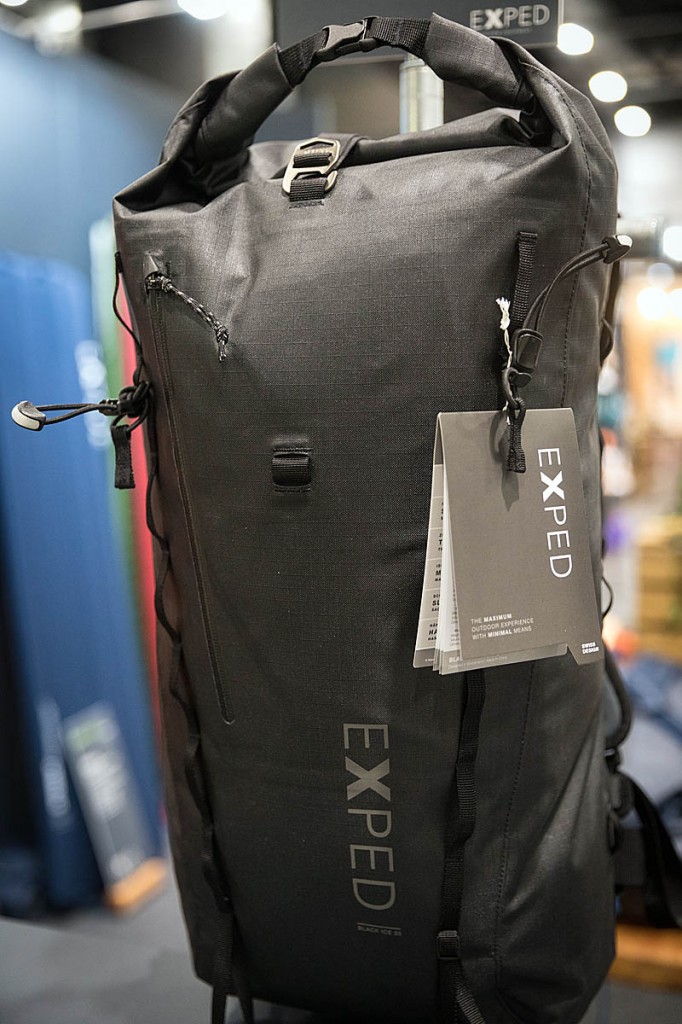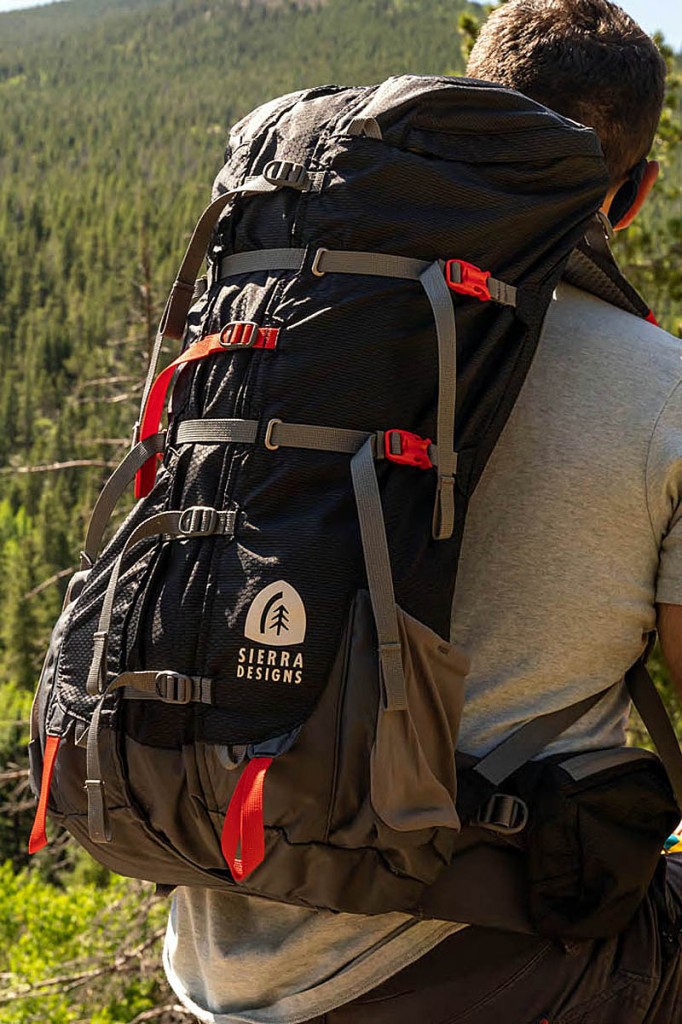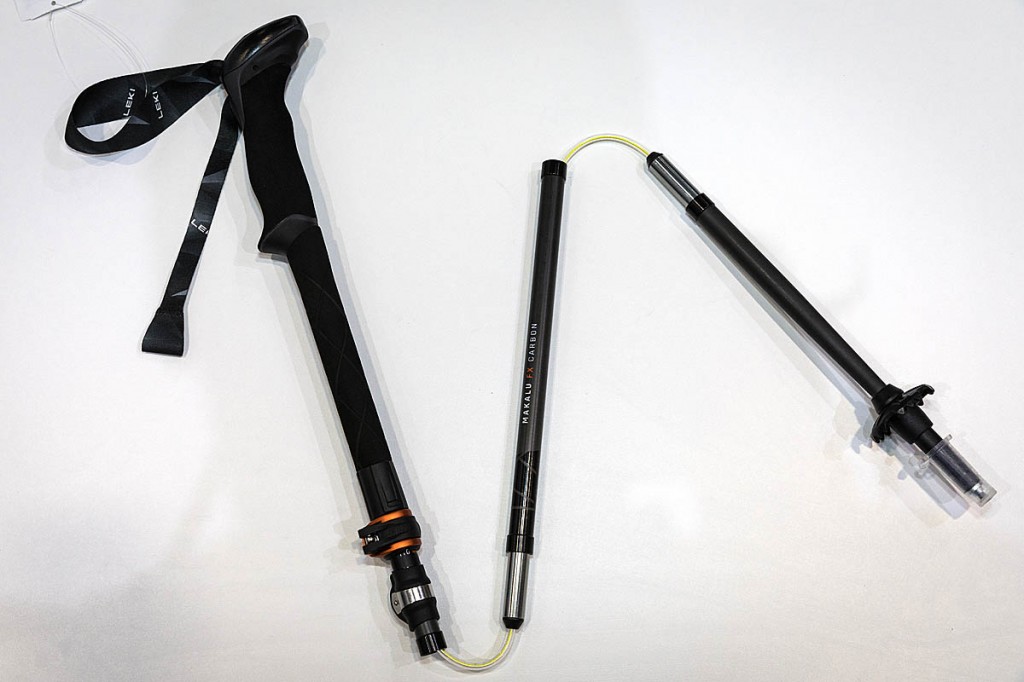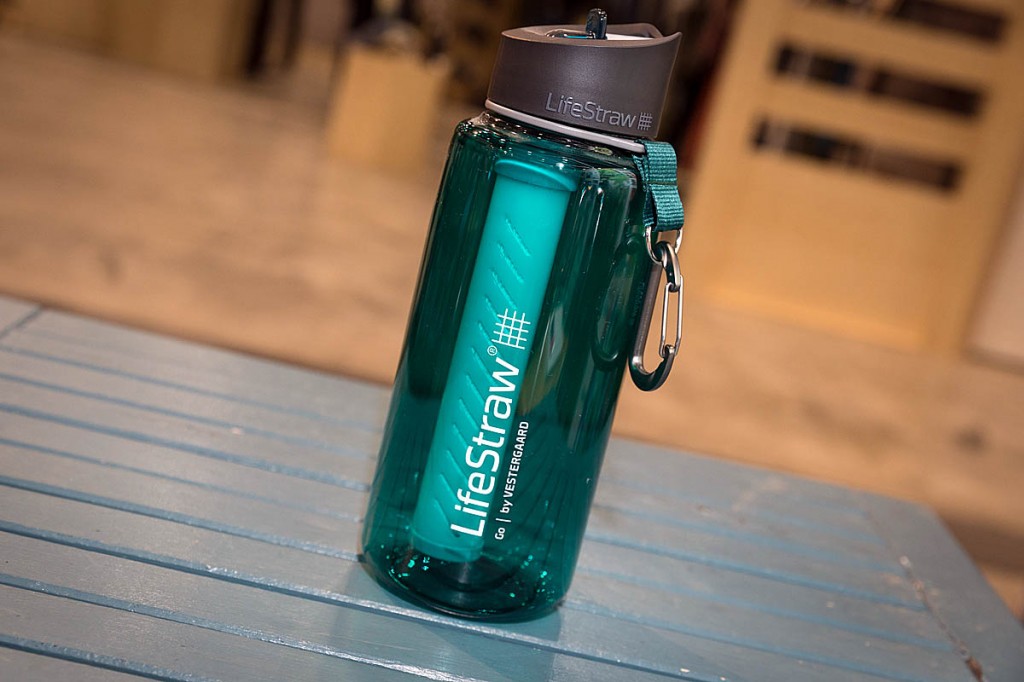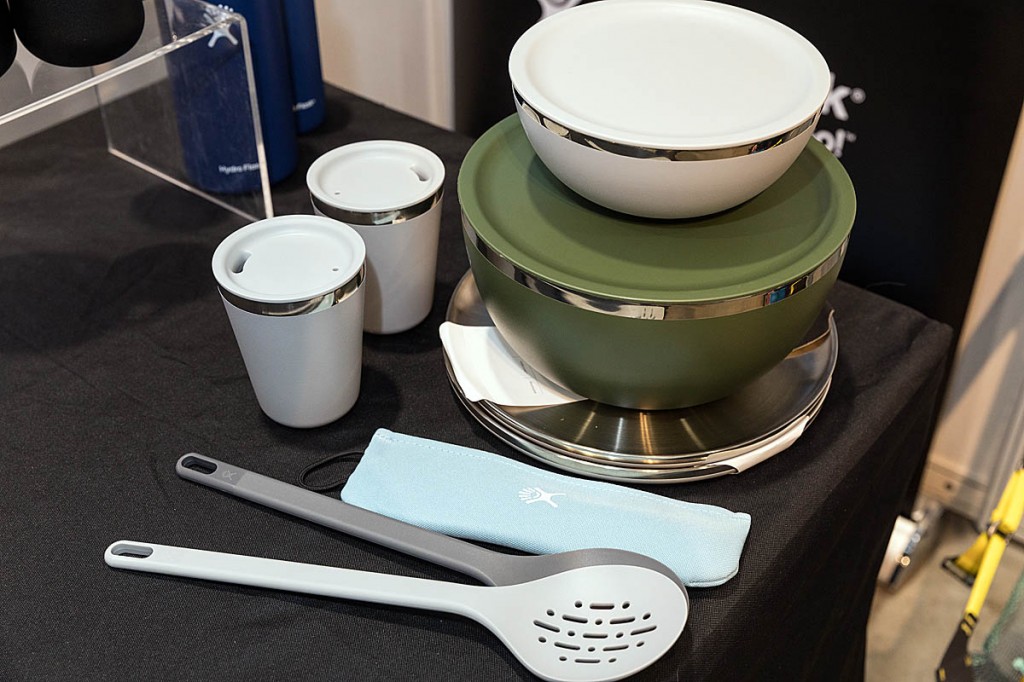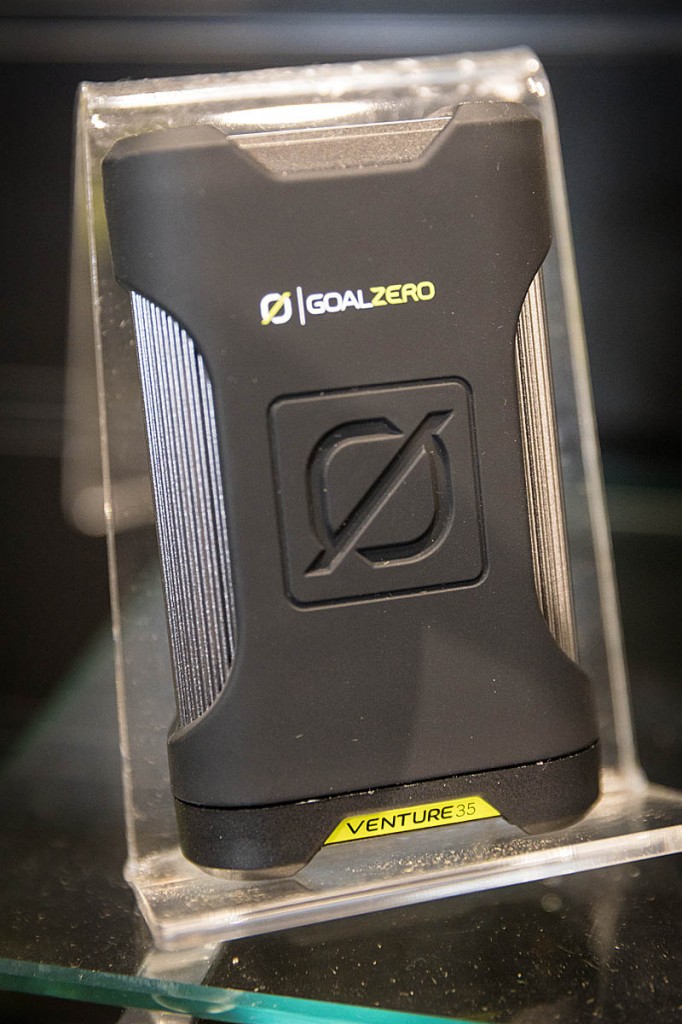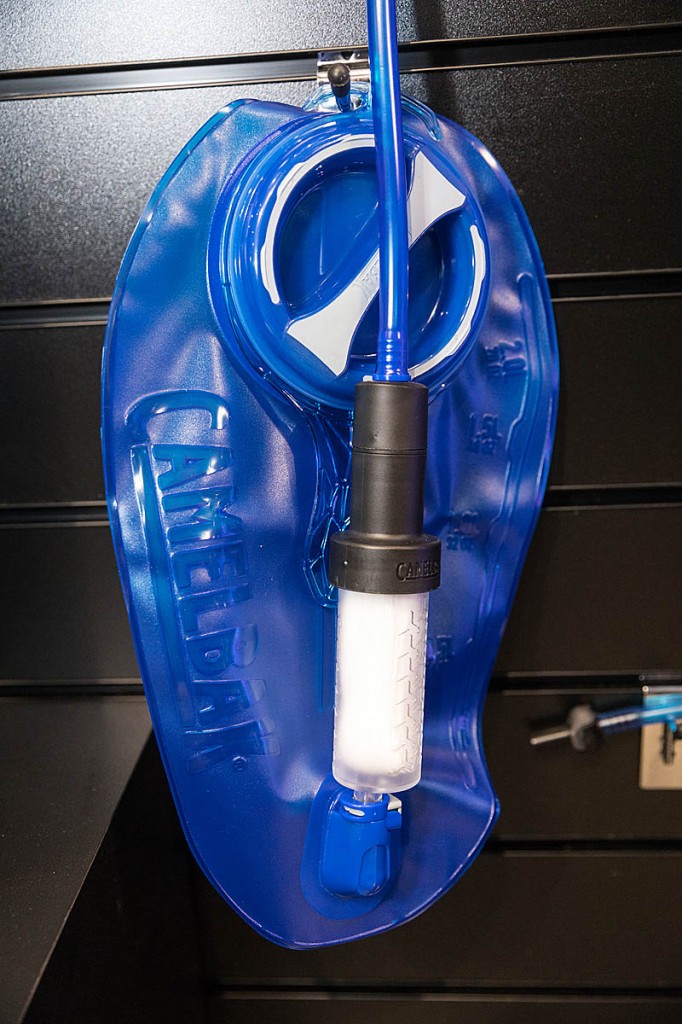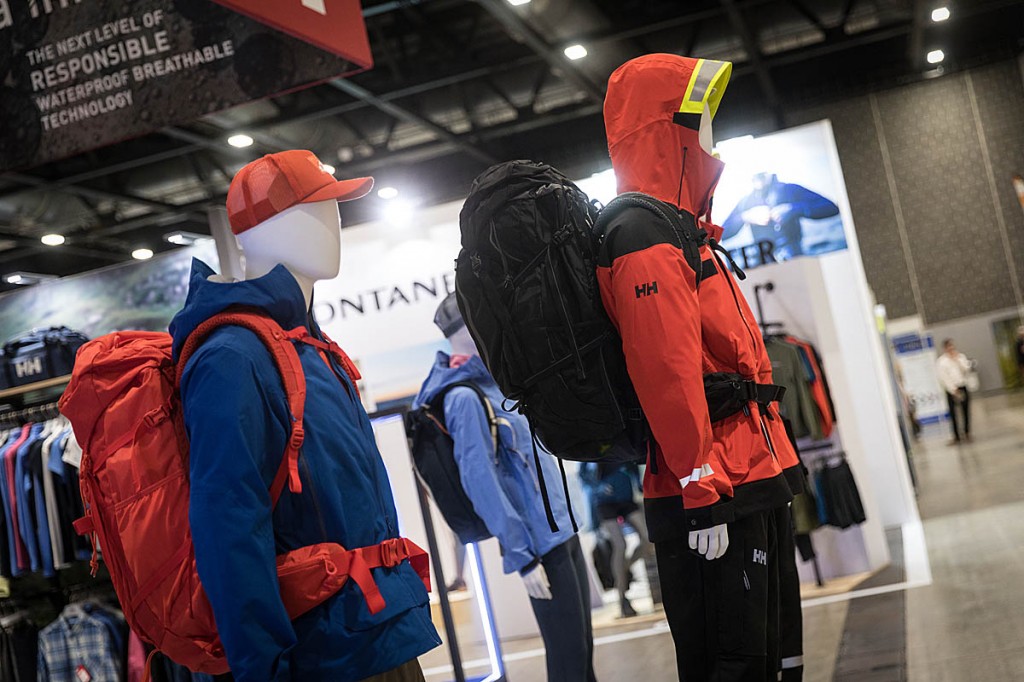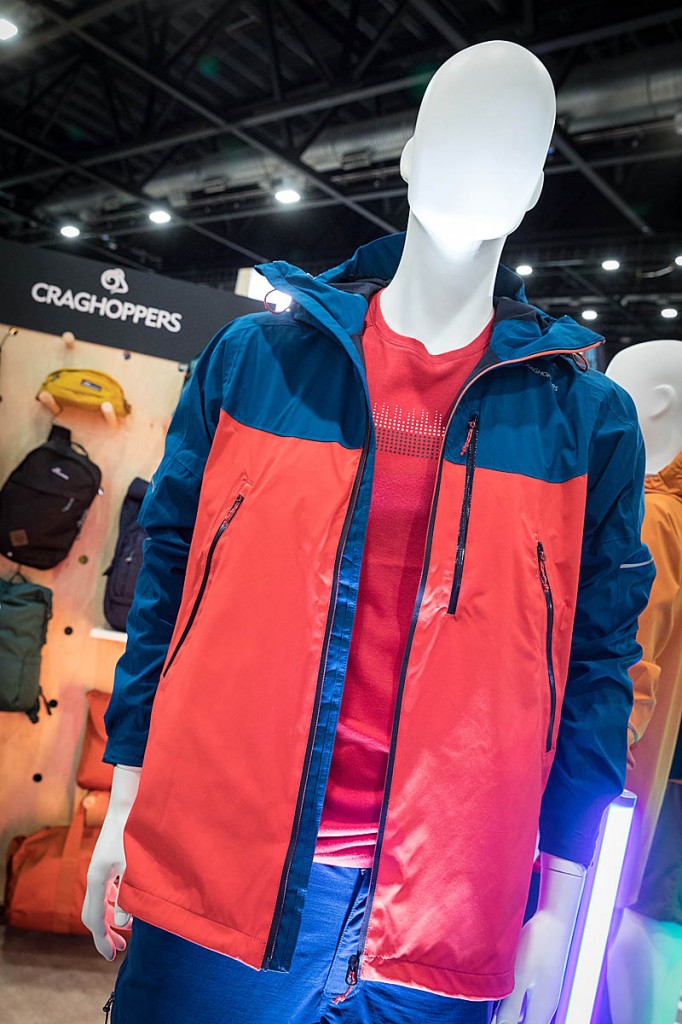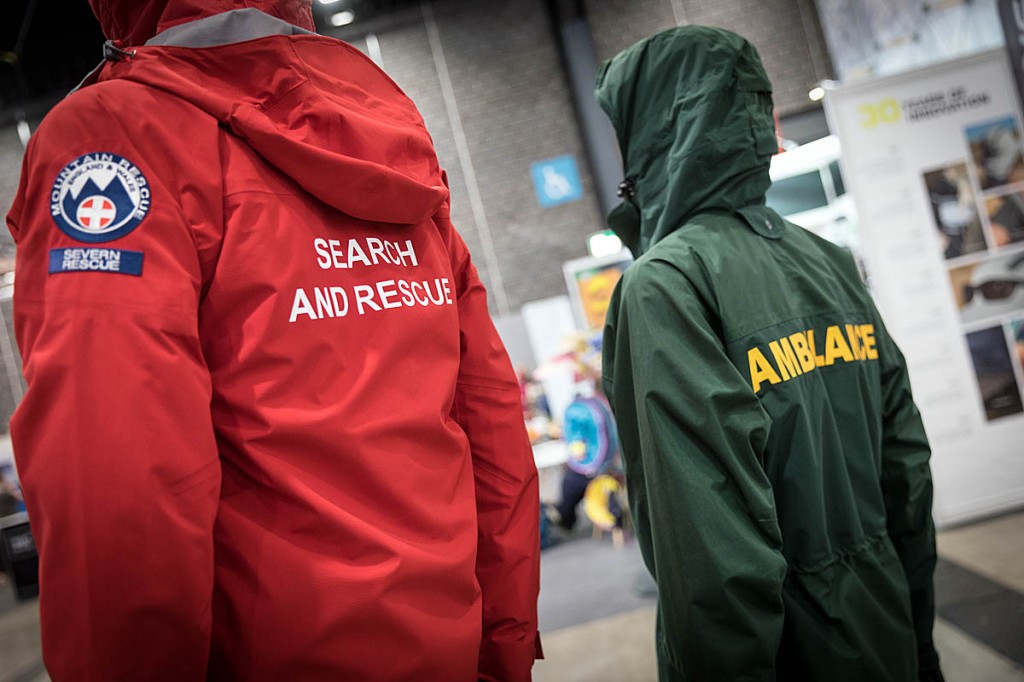The outdoor industry has taken its first tentative boot-shod steps to a kind of normality with the staging of a UK trade show, for the first time in two years.
The Outdoor Trade Show was the first time since the start of the various lockdowns that industry figures had the chance to meet face-to-face.
Masks and social distancing were still the order of the day at the event on the banks of the River Mersey in Liverpool, and the show was held in a modern, spacious hall with good ventilation and with extra space provided in the aisles.
Shows such as OTS provide an opportunity for retailers to see products planned for upcoming seasons, and also give media representatives a chance to view new gear likely to appear in the shops, in this case in spring and summer 2022.
The overall story was one of increasing demand for outdoor clothing and equipment as more people discovered the delights of exploring the UK countryside in the face of restrictions and uncertainty over foreign travel.
Camping brands in particular saw their products leaving the stores in large numbers as life under canvas became the holiday of choice for many new consumers.
But the counter to this was the difficulty in supplying the demand from customers. A combination of difficulties caused by the Covid-19 pandemic in manufacturing countries in the Far East, plus importation problems following the UK’s exit from the European Union, meant stock problems for many brands, unable to meet the increased demand from customers. A container ship slewed across the Suez Canal didn’t help either.
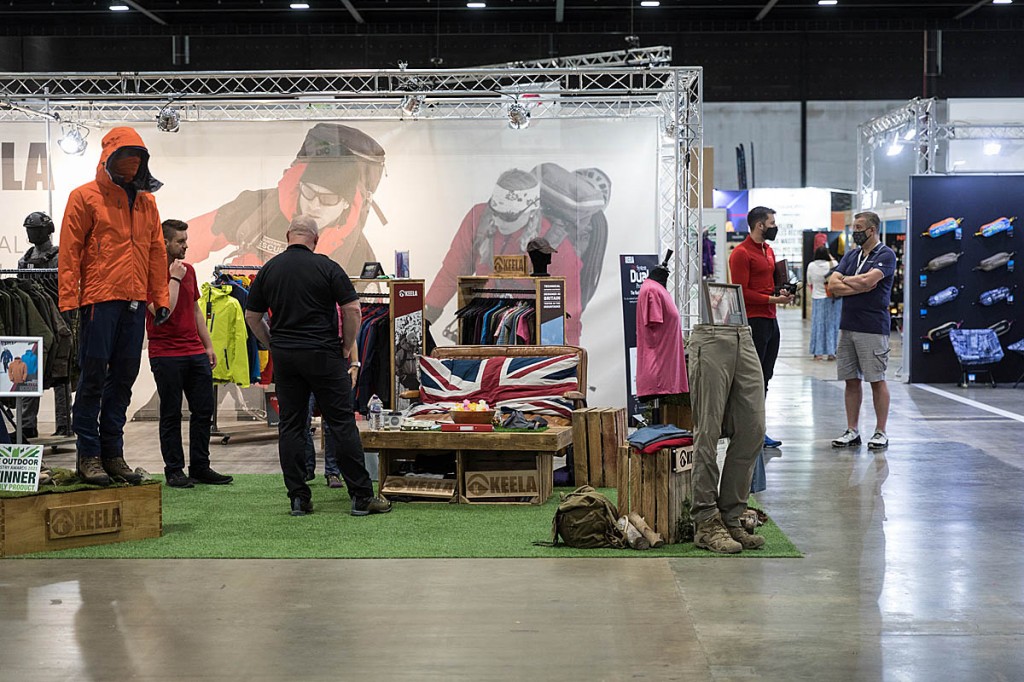
Coronavirus precautions included wide aisles and face coverings when off stands. Photo: Bob Smith/grough
All the uncertainty caused by coronavirus meant there were fewer companies exhibiting at the show than previously, in 2019. There were 110 trade stands compared with about 130 at the previous event, Marta Williams, one of the OTS organisers said.
But the show was deemed a success by most who attended. Co-organiser Alasdair Scobbie, managing director of MCS, said: “The people who have come have been serious about placing orders and buying, so it’s quality visitors.
“If certain brands hadn’t cancelled, we certainly could have filled the space. The ambition would be to get those people back. And there’s interest from other brands. You’ll have seen people here who have come to have a look around and have a feel for it, perhaps with making a commitment for next year.
“We didn’t know what to expect and we had nothing to compare it to. These are strange circumstances.
“We’re planning to be back in 2022. There’s the eternal debate about dates. We’ve reserved some dates but there’s still some discussions going on about which dates would be most suitable.”
MCS director Ms Williams said: “Everybody seems to be happy. They like coming here. There’s a different vibe: the setting, and the city. Everybody seems quite pleased.
“Seventy per cent of visitors are retailers then we have press and quite a lot of people come to have a look and there are service providers too. It seems quieter but people are very happy.”

Visitors were asked to carry out rapid-flow tests before coming to the show. Photo: Bob Smith/grough
Another almost universal theme from brands at the show was sustainability. At every stand I visited the word was mentioned, either in the form of using materials that are less harmful to the environment and user, or of increasing the longevity of gear, so cutting down the use of resources.
Ms Williams pointed out that a UK show could be part of that picture if OTS becomes more of a destination for brands rather than, say the ISPO event in Germany. “People are talking about sustainability: why do we fly to the international shows when we could do it here?
“But the big brands’ order books are already closed, so they want things earlier. We’ve held the shows in October, September, then jumped back to July, now we’re at the end of June.”
This year’s date was presumably chosen in the hope UK government lockdown restrictions might have ended by the end of June, but that was not the case. But the show was still able to go ahead with the same mitigations in place you might have seen in your supermarket, with wider spacing and obligatory mask wearing.
So, what might we see in your local retailer or, just as likely, on their website in the months to come?
Footwear
Hanwag
The Blue Ridge range has been expanded and now includes a shoe and a mid-boot. Both are PFC-free and are available with Eco-Shell waterproof membrane or hypoallergenic chrome-free leather lining.
The European-made footwear uses Perwanger suede and the tongue is Hanwag’s new 3D Breathe Fit. The outsole is optimised for trails. The boot will retail at £170 and the shoe at £150.
Hanwag’s Makra Light boot has been developed for use where scrambling terrain will be encountered. The Perwanger suede uppers have Gore-Tex waterproof lining and the boots tip the scales at about 1kg a pair.
The new outsole features deeper 6mm lugs at the heel and 5mm ones at the forefoot. The lacing system has a toggle for quick cinching round the foot when extra security is needed on technical terrain. The boots will cost £220 in the shops.
AKU
The brand’s Rocket DFS is an evolution of the brand’s Rock approach shoes, but lighter and aimed at the fast and light user.
The shoe has breathable lightweight fabric uppers with a printed structure to add rigidity. The Rocket DFS has AKU’s adaptive Dual Fit System, a combination of conventional lacing and a toggle system to allow rapid tightening for more technical terrain. The range has Vibram’s Traction outsole which it says gives 25 per cent more grip. A Gore-Tex lining gives the Rocket DFS its waterproofing. Retail price will be £170.
The Croda DFS GTX boot also has the Dual Fit System lacing, but also has a zipped lace cover.
There’s Kevlar abrasion protection and Gore-Tex waterproofing and the Vibram outsole is 50 per cent thinner than previous models, and 30 per cent lighter. The boot comes in men’s and women’s versions and will sell at £380.
Craghoppers
The brand has developed a range of boots and shoes, the Adflex, aimed at fast and light use, with a Vibram Litebase outsole and a midsole developed by Craghoppers.
The range uses recycled fabrics and incorporates the anti-bug Nosilife treatment in the mesh. The price of the boot is £150 a pair, with the shoe retailing at £140.
Also new but currently in the shops is the Locke Packaway travel shoe, which uses recycled coffee grounds in the midsole. The shoes cost £75 a pair.
La Sportiva
The brand has introduced a mid-boot version of its Ultra Raptor shoe, a crossover-style running and approach model. The new boot is aimed at fast-moving users, with the lacing linked to an exoskeleton. The boot has a Gore-Tex Extended Comfort membrane for waterproofing, and a Memlex EVA midsole for cushioning.
The outsole uses the brand’s stickiest compound, FriXion White Rubber, and the boot also comes in a wide-fit option. The Ultra Raptor II Mid is in the shops now at £155.
The TX Canyon has been developed for a very specific use. The shoe has a range of features useful, as you might deduce from its name, in canyoning or its UK version gill scrambling.
Its components are water-repellent and PFC-free. The uppers are three-layer Ariaprene sandwich mesh, one layer of which, an internal particle barrier, uses recycled polyester. The TX Canyon uses a Spyral Collar lacing system to wrap the ankle, keeping debris out, and tension is adjustable through the Tongue-Lock closure strap with an external cover for protection. The midsole also contains recycled content from La Sportiva’s own waste.
The boot is designed to release water quickly, with open ‘valves’ located in the arch. The edge of the outer sole is rounded to prevent jamming between rocks, and the rubber toecap is integrated into the outsole to avoid delamination of the forefoot area. There’s a cushioned EVA midsole and Vibram IdroGrip outsole, featuring a grippy ‘climbing zone’ at the toe.
The sizing is for use with a neoprene sock. The TX Canyon will cost £155 a pair when it appears in the shops.
La Sportiva’s Aequilibrium LT GTX is a technical trekking boot designed for alpine backpacking and multi-day walks. The brand says its Double Heel sole construction, integrated into an exclusive Vibram design, has a very pronounced double-block rear geometry which increases the downhill braking effect and allows a more fluid roll, reducing muscle fatigue.
The uppers use a durable combination of Nubuck leather and abrasion-resistant nylon fabric inserts, with a Gore-Tex Performance Comfort insert. Thermoplastic polyurethane shells are integrated into the toe and heel to reinforce the upper, enabling use with semi-automatic crampons.
The Aequilibrium LT GTX weighs 1,280g a pair and costs £295 for the synthetic version and £325 for the leather model.
For runners on short to mid-distance routes, the Cyklon trail running shoe eschews conventional laces and uses the Boa system to ensure a good fit. The circular dial sits on the outside of the shoe and tightens the narrow, offset laces to achieve a snug fit around the foot.
The shoe costs £140 and the men’s version is in the shops now, with the women’s version expected in autumn-winter this year.
Camping
Primus
Primus has two new stoves for use at base camps. The Alika is aimed at van campers or holiday campers and has twin burners, one rated at 3,900W and the other at 3,000W. The lid is detachable and also acts as a hotplate if needed. It will run for 40 minutes on a large gas canister. The burners have piezo ignition. The Alika will go on sale at £245.
The smaller Moja features a single burner and will have a retail price of £170. The stove runs off a standard butane-propane-mix canister and Primus say it is ideal for glampers and van campers.
For backpackers and lightweight campers, the Lite XL has a has a 1 litre capacity, enough, the brand says, for two people sharing. The pot is made from anodised aluminium and a built-in heat exchanger makes the stove faster and more efficient.
The lid is made from bio-plastic, with a high plant-based content and subsequent lower carbon footprint, while remaining recyclable. It will sell for £145.
Craghoppers
The Nosi Defence Kiwi Tent is Craghoppers’ entry into the camping market and is a traditional-design, some might say retro, ridge tent made from a polyester-cotton 65-35 per cent mixed fabric, with the polyester fully recycled. The fly sheet’s water-resistant treatment is PFC-free and the has the brand’s Nosi Defence anti-insect material, along with an Eco anti-mildew treatment.
The Nosi Defence Kiwi Tent has a sewn-in groundsheet and is designed for four people.
It’s 8.2kg, so not a backpacking tent, but the brand says it’s suitable for family camping and staycations. It will be available next spring for £550.
Vango
The brand is a major player in the camping sector of the industry and its launch of the Earth Collection, using recycled fabric, is indicative of the route ahead for most of the outdoor brands.
Vango has also established a repair centre near Glasgow, which is says will carry out pole repairs for its tents, no matter what their age. The Camping and Recycled scheme uses samples and returned camping equipment and puts them to a new use, and the brand has entered into a partnership with Sheltersuit to recycle tent fabric and sleeping bag fill to create items for homeless people and disaster-relief agencies.
Vango is looking to recycle 8.3 million plastic bottles into its products. Its Earth Trek tent range re-uses single-use plastics in a 70 denier Protex Eco fly with 3,000mm hydrostatic head waterproofing.
The new lightweight Neon Tent has F10 carbon X-Light poles, Protex 7 denier double silicone fabric giving 2,000mm waterproofing and comes with titanium pegs. It can be packed down to a minimum 445g trail weight.
Continuing the sustainability theme, Vango’s Trek Pro sleep mats use TrekEco fabric, and its range of new rucksacks are manufactured from the Excel EcoFabric, with recycled content. Microlite 50, 200 and 300 sleeping bags use Polair Active Eco Shell fabric and 4T Eco Synthetic Insulation.
When you consider how many of Vango’s product users are young people heading for the outdoors on, for instance, Duke of Edinburgh’s Award expeditions, it certainly seems good commercial sense for the brand to espouse sustainability.
Jetboil
The brand’s Stash stove is its lightest all-in-one model, and uses a titanium burner and hard-anodised aluminium pot, keeping the weight down to 200g. It will boil 500ml of water in 2½ minutes and is designed to heat water for freeze-dried meals and hot drinks. The Stash features Jetboil’s FluxRing heat exchanger for maximum efficiency. The stove will retail at £139.99
BioLite
BioLite’s AlpenGlow Lanterns feature ChromaReal LED technology to provide different lighting tones at a shake for a rotation of the lamps various colours, which can also be selected individually to suit your mood.
The lanterns come in two versions: the 250 provides 250 lumens, and the 500 has 500 lumens illumination, both with USB outputs for charging your electronic gear.
The 250 costs £54.99 and weighs 215g; the 500 retails at £79.99 and is 390g.
Optimus
The brand’s Gemini stove is a lightweight twin burner model featuring fold-out pan supports that double as legs.
Each burner is regulated and provides 3,400W of power and a single burner will last for 165 minutes from a large butane-propane canister.
Expect to pay £170 for the Gemini when it appears in the shops.
Exped
The Swiss brand has set itself the aim of being climate-neutral. It says, by 2022 more than 70 per cent of Exped’s products will be climate neutral through CO2 offset projects by Myclimate. The target is to be 100 per cent climate neutral by 2025. The company said it is more than halfway there.
It added that 97 per cent of Exped products use Oekotex 100 or bluesign-certified fabrics, buckles and zippers and 85 per cent of the Exped range is PFC free, and it will reach 100 per cent by 2025.
It will also change the way its sleepmats are designated. In future its mats will be categorised by insulation value, the R-value, across three range: Ultra, Dura and Versa.
The Ultra family is available in 1R, 3R, 5R and 7R variants for use from summer to extreme cold. Ultra-lightweight mats for human-powered adventures, including backpacking, through-hiking, bikepacking and alpinism.
Dura is aimed more squarely at colder environments, available in 3R, 5R and 8R variants for use from three-season use to the most extreme and challenging cold environments on the planet. Durable, extra-warm mats for demanding adventures, including extended outings in alpine and polar regions, rugged paddling trips and overlanding.
The Versa family comes in 1R, 2R, 4R and 5R variants, for summer through to all-season use. They are versatile, multi-use mats for a variety of adventures, including camping, backpacking and adventure travel.
Helinox
The camping chair brand is building its demand in the UK and, with an eye on the growing basecamp and glamping market, unveiled its Cafe Chair and Cafe Table.
These have a more upright frame than the usual Helinox range, aimed at campers who want to cook, eat, play games and perhaps even work.
The Cafe Chair uses the same silhouette as the brand’s Chair One Large, but with a higher seat and a back tilted more to the vertical by 12 degrees. It tips the scales at 1.4kg and will take a weight of up to 145kg.
The Cafe Table sits 68cm off the ground and is big enough for two people to sit and eat together. The wipe-clean laminate top that is heat resistant to 180C, so can be used for preparing and serving hot food. The table weighs 3.85kg and packs down flat into a carry case, which can be easily stowed in a car boot, campervan or caravan.
The Cafe Chair and Cafe Table will retail at £160 and £200 respectively.
And while you’re glamping, it seems only fair that Fido or Dido are accommodated in comfort too.
Helinox’s Elevated Dog Cots some in medium and large sizes, 90cm x 60cm (1.41kg) and 100cm x 70cm (1.56kg). The cots combine DAC aluminium with a strong, claw-resistant mesh, and give dogs a place to sleep that’s raised off the ground, good for tick prevention and air circulation during warm weather. Helinox has also created durable synthetic and fleece insulation accessories for the cots, for cooler conditions.
The smaller size cot will cost £170 and the larger one £190.
MSR
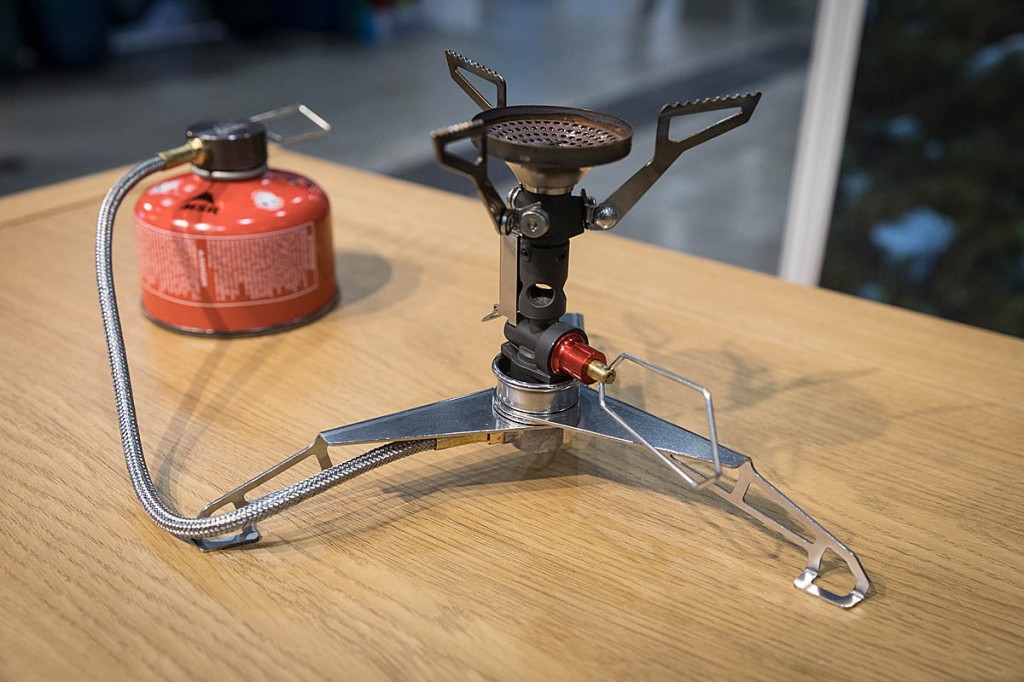
The MSR Low Down adapter allows a canister-top stove to be used in a low position. Photo: Bob Smith/grough
The stove specialists unveiled an accessory for its lightweight canister-top models.
The LowDown Remote Stove Adapter connects to the bottom of the brand’s stoves including PocketRocket series, Reactor series, or the WindBurner Personal and enables a lower centre of gravity for more stable cooking, adding versatility.
The adapter has fold-out legs and also features a simmer control, so you can regulate gas flow either from the LowDown or from the canister-top, moving away from the stove’s flames for better safety.
The packable adapter weighs 180g and costs £45.
MSR has updated its Freelite tent range.
The two-person version is 270g lighter and has improved features, including no-curve zips, extra storage pockets and reinforced tension points. The packed Freelite two-person weighs 1.06kg and has a rectangular floor area to maximise internal space, so side-by-side sleep mats don’t overlap.
The range has 15 denier Rainfly fabric and DAC NFL 8.7mm poles. The two-person version will sell for £440. The Freelite also comes in an 890g one-person version and a 1.23kg model for three people.
The Therm-a-Rest Space Cowboy sleeping bag is designed for used in warmer weather and has a 7C rating.
The brand has made the bag roomier and it now features sustainable fabrics, with softer and lighter 100 per cent recycled nylon content in its shell.
The Space Cowboy is available in sizes small, regular and large. The regular size bag weighs 780g and uses eraLoft polyester fibre insulation. It will sell for £135 in its regular version.
Kelty
The US brand had on display its Cosmic Down Ultra sleeping bag, a development of its Cosmic bag that now uses 800 fill-power DriDown to give an ISO rating down to -18C minimum and a comfort rating of -8C. The down is water resistant and sourced from RDS-certified suppliers.
The bag has a natural-fit foot box and trapezoidal baffle construction for better heat retention. The fabric has PFC-free durable water resistant treatment and tips the scales at 1.8kg in its regular length version.
The Cosmic Down Ultra is on sale at £295.
Rucksacks
Osprey
Osprey emphasised its commitment to producing rucksacks tailored to women’s anatomy rather than just a different colour pack from the equivalent men’s version. The Aura AG50 is the female-specific 50 litre load lugger model of the popular Atmos pack.
The brand also had on show a range of waterproof packs, including the Transporter WP30, part of a range designed for users in wet environments such as paddlers, standing paddleboarders and gill scramblers.
Exped
Exped had on display its Black Ice pack, a minimalist roll-top model, with 100 per cent waterproof construction.
The rucksack is constructed from 400 denier ripstop nylon with TPU film lamination. The pack has a removable crosslinked PE foam board back and has a single compartment in a slim profile to keep the centre of gravity close to the body. It has a removable hip belt.
The Black Ice comes in 30 litre and 45 litre versions, priced at £145 and £155 respectively and tipping the scales at 740g and 820g.
Sierra Designs
The brand’s Flex Capacitor range of rucksacks feature a patent-pending gusset that allows the user to vary the pack’s capacity. Horizontal webbing volume adjusters enable a better fit for the contents than conventional compression systems.
The rucksacks use a Y-Flex DAC suspension system with aluminium frame to support weighty loads over long or short distances.
The packs also have twin mesh side pockets plus stretch pockets on the harness straps. There are also zipped pockets on the hip belt.
The Flex Capacitor comes in three sizes: 25-40 litres, at £150; 40-60 litres at £165; and 60-75 litres at £185.
Accessories
Leki
The German walking pole specialist has had a complete brand relaunch and had on display two carbon fibre models, the Makalu FX and the Cressida FX. The former is the longer of the two, with a range of 110cm to 13cm, weighing 254g each, while the latter is a shorter model, with lengths between 100cm and 120cm, tipping the scales at 245g. Both pack down to 40cm length and will retail at £190 a pair.
The Makalu and the Cressida both have carbide tips and the Aergon air grip to save weight.
The Cross Trail Superlite is aimed at fast and light travellers and comes in folding and non-folding versions, at £210 and £160 respectively.
Leki also pledged to keep replacement parts for its folding poles for 10 years from the sale, so sections can be replaced without throwing away the whole pole. A typical repair will cost about £25 per section it said, and it will also recycle used poles at the end of their life.
Lifestraw
The filtration experts had on show a new 1 litre version of its Go bottle incorporating a two-stage filter. The system eliminates bacteria, microplastics and protozoa to make microbiologically contaminated water safe to drink, while also reducing organic chemicals, chlorine and bad taste.
The 1 litre bottle, retailing at £49.95, and its smaller cousin the 650ml version, selling for £5 less, have flip-top bite valves and a carabiner for attaching to packs or belts. A stainless steel double-wall vacuum insulated version will also be available for £64.95.
The plastic bottles are BPA free and come in a choice of five colours.
Hydro Flask
The brand unveiled its range of family-oriented camping accessories including the Outdoor Kitchen Set which will be in the shops from spring 2022. The camp cooking range includes plates, bowls, cups and serving spoons, all demonstrating the Hydro Flask quality. Prices start at £19.95 for serving spoons, and go up to £53.95 for a serving bowl with 3-quart capacity – it’s an American brand – we reckon that equates to about 2.84 litres, or five pints in old money.
Nikwax
Understandably, given the increased number of people discovering camping for the first time, the reproofing brand was concentrating on that sector of the market.
But it also said it wanted to inform newcomers to the outdoor scene how to keep their waterproofs and other clothing in good condition and how to reproof their shiny new jackets to maintain the best performance.
GoalZero
GoalZero unveiled its upgraded Venture 35 and 70 power banks, dustproof and waterproof to IP67 standard, and featuring protective rubber sleeves. The 35 model can be recharged in two hours via a new 18W USB-C port and delivers 9,600mAh with the addition of two USB output ports. The Venture 35 costs £69.99 and the Venture 70 £119.99.
Camelbak
The Hydration brand has teamed up with LifeStraw to incorporate a filter into its Crux reservoir to allow access to on-the-go filtered water. The in-line filter removes bacteria, parasites and microplastics, and also has an ion-exchange filter to lead, taste and odour, chlorine and other chemicals.
The Camelbak Crux 2 litre Reservoir Filtration Kit Filtered by LifeStraw will cost £64.99 and is expected in the shops in February 2022.
Clothing
Páramo
The brand revealed a few interesting facts about life under the pandemic. Its main factory in Colombia had been subject to curfews during lockdowns, necessitating changing work patterns for its mainly female workforce.
Retail orders are growing for the brand, with many customers choosing Páramo for its sustainability credentials and the ethos behind it. Its repair workshop in East Sussex has work into August and, bizarrely, there has been a growth in vintage Páramo jackets being traded on Instagram.
The brand revealed an updated version of its Velez jacket, in women’s and men’s versions, now on sale at £300 and using lightweight material and 100 per cent recyclable.
Also on show was the Bentu Plus fleece jacket, plusher than the standard version, in women’s and men’s models and with a shop price of £150.
Craghoppers
The brand seems ideally placed to benefit from the new influx of British holidaymakers discovering the outdoors.
It reported increasing online sales, particularly among younger customers.
Among innovations are the Dynamic 12000 range, incorporating a lining that reflects infra-red radiation. Its styling is aimed at that younger, fast and light market and includes waterproofs and fleeces. The polyester used is recycled – this year Craghoppers expects to hit the 50 million target for recycled bottles used in its products.
The brand uses plant-based Eco Shield in its waterproofing for jackets.
Keela
Keela introduced its Viral Off range in response to the coronavirus pandemic. The Viral Off clothing has the treatment, developed by Polygiene originally in response to the previous Sars epidemic, and includes t-shirts, trousers and a neck tube. The last retails for £9.95, while the t-shirt, in men’s and women’s versions, costs £29.95.
The Keela Insect Shield clothing has treatment to repel biting insects and the range includes t-shirts, trousers and socks. There’s also a blanket, with a price tag of £44.95 to keep you warm at camp. The Insect Shield treatment is good for 70 washes.
So it’s pretty clear outdoor brands are responding to the demand for a more sustainable approach and I think that’s likely to become even more important in the future.
Fast and light users also seem to be a group of customers a lot of companies are giving their attention, while it will be interesting to see how continuing worldwide Covid-19 problems affect the ability of many brands to satisfy the demand as new converts to outdoor activities boost sales both on the High Street and, increasingly, online.
The plan is to repeat the show at its Merseyside site in 2022. Anyone got a crystal ball?
